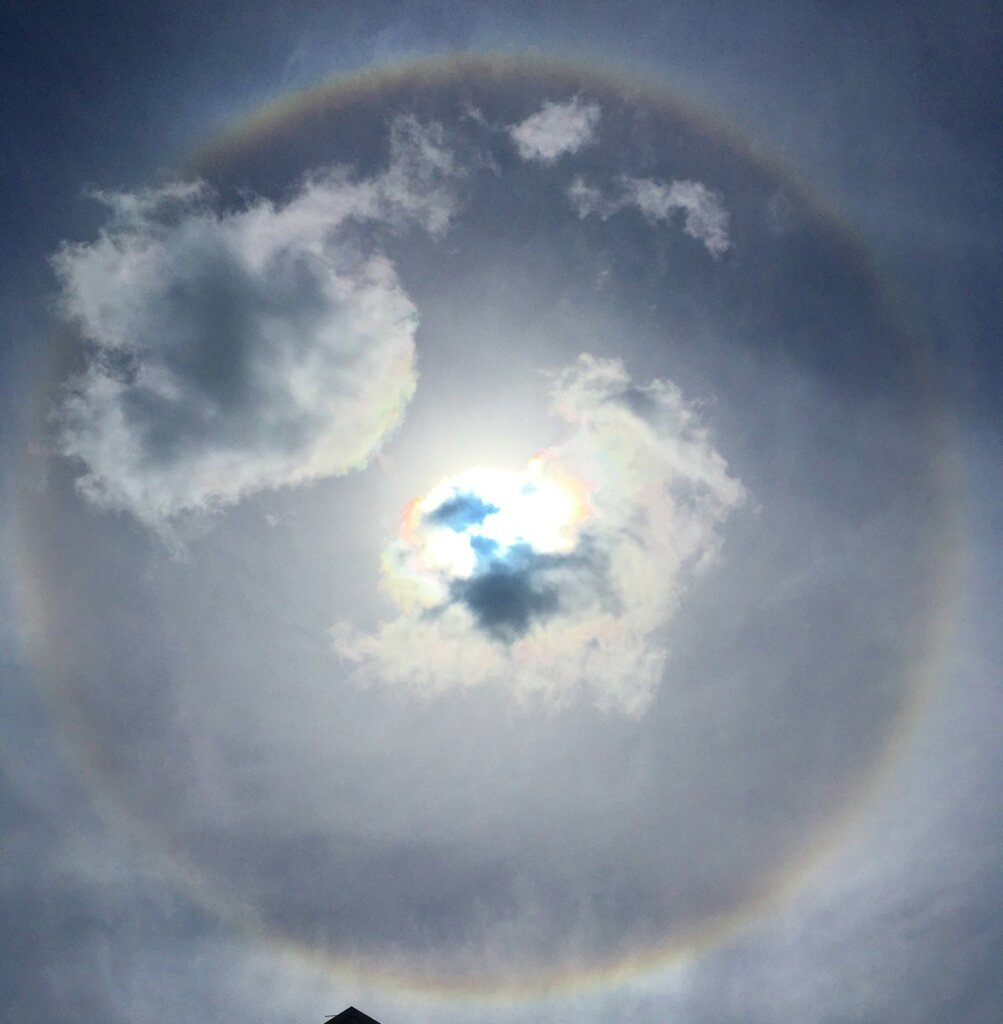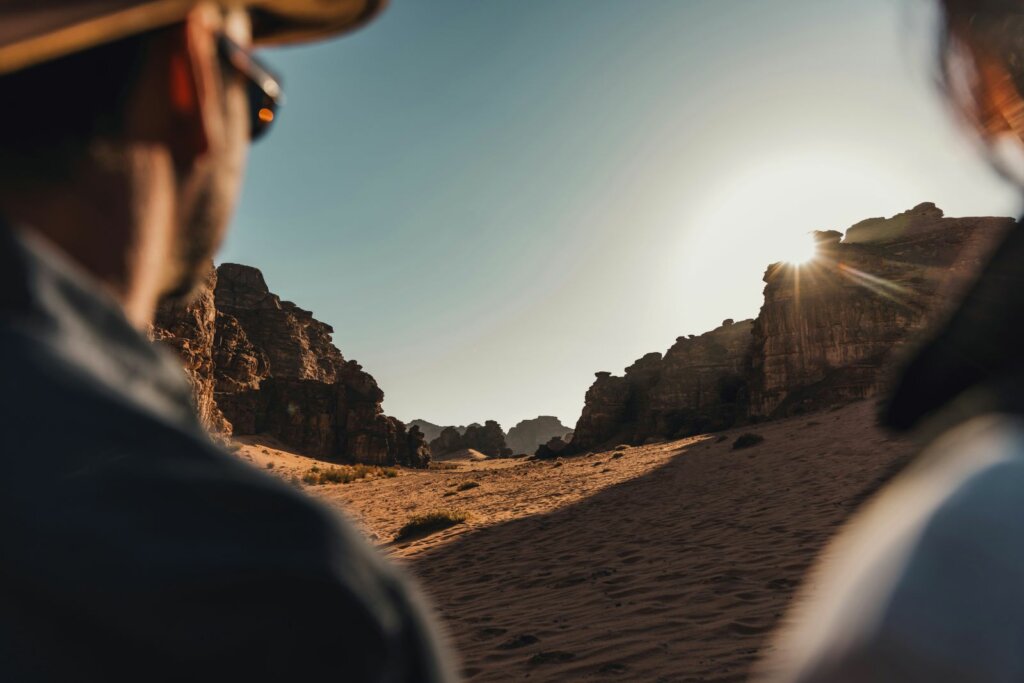I’m currently in Texas for what I hope is a peak experience, aka, watching the total solar eclipse. What follows is a repost from September 2015 so the content has changed – neither of the men mentioned here are a part of my life anymore, for instance – but the concept is still valid and apt for my current circumstances. Maybe they apply to you too.
Lately, I’ve been humbled and in awe of the magic, the mystery, and the surprise of life. So often I think I know how things will play out and I’m being shown, yet again, I have no idea. This has come up especially regarding people.
I met someone in December 2013 who I liked right off the bat and had high hopes for his involvement with my yoga and meditation community. He seemed so keen and enthusiastic. He came to our newly formed meditation group a few times consecutively and then stopped. I wrote him off, never expecting to see him again except on Facebook. Someone else in the group said, “Well, that’s the last time we’ll see that guy again.” But it wasn’t. About a year later, “that guy” surprised us by circling back. He’s shown himself to be a dedicated member of my community, and much to my surprise, he’s a dear friend and an important person in my life. Go figure.

Pictures of space always make me think of a divine intelligence. Photo by Rodion Kutsaiev on Unsplash
Similarly, three years ago I connected with someone and felt affection for him right away. We hung out a few times and then I didn’t hear much from him again. I assumed he would be a peripheral friend, someone I’d invite to a party, but nothing more. Color me shocked when he called me up last week to catch up and reconnect. That’s not how I was expecting things to play out. And that’s the point – I never know how things will play out.
I throw myself into a tizzy thinking about the future because I’m absolutely sure I know what will happen. If I’m not friends with you now, I won’t be friends with you later. If I’m single now, I’ll be single forever. If I’m in debt now, I’ll be in debt forever. It’s a small thing, but these two men remind me I have no freaking clue what the future holds and they remind me someone, or rather something else is in charge here.
Indian-American economist, author, and professor Ravi Batra wrote a book in the late 80s that became a number-one New York Times bestseller. He attributed his success to the “cosmic magician.” I love that. It certainly seems that way when something unexpected and amazing happens like writing a runaway bestseller when all your previous books weren’t as successful. Thinking of the cosmic magician reminds me amazing and magical things can happen and they’re not up to me. I’m not the one responsible for outcomes, or the fruits of my labor, if you will. Not just with writing, but with everything.
My spiritual teacher says, “Behind this world’s creation, there is a cosmic magician who has created the universe and also controls it. In fact, whatever has been or shall be created is He and He alone. Those who have realized this truth attain blessedness.”
When I can remember the cosmic magician, I can relax because it means I’m not responsible for everything in my life. Some things yes. But everything? No. There are greater forces at play in the world that have absolutely nothing to do with me. And those forces are often working to create something amazing and magical if we only have enough patience to see how it turns out.
I dream of a world where we realize there is divine intelligence at play. A world where we allow ourselves to be open to whatever comes our way because we have no idea what’s ahead. A world where we understand amazing and magical things happen all the time not because we “made them happen,” but because there’s a cosmic magician working behind the scenes on our behalf.
Another world is not only possible, it’s probable.
If you follow me on Facebook or Instagram, you already saw the picture associated with this post but I want to tell the story behind it. The past week was rough. Mars entered Pisces and started lighting up various parts of my astrological chart. Mars is the God of war; assertiveness, bravery, and forward motion are positive expressions of that energy. Negative expressions are aggressiveness, brashness, and impulsivity.
I mostly felt the negative expressions. My temper ran hot and I wanted to be impulsive. Because things weren’t going how I liked, my internal response was, “Burn it to the ground!” (For the record, I didn’t.) Add in Mercury retrograde, which is also lighting up my chart so communication has been wonky and technology isn’t working properly, and you have a recipe for not-fun times.
(I recognize not everyone believes in astrology and that’s fine. You don’t have to. For the purposes of this post, just remember there are times when you’re angry, frustrated, and things aren’t working how you’d like them to.) So, in the middle of this delightful mood, I took a walk and a voice told me, “Look up.” I did and saw a rainbow ring around the sun.
I squealed and shared my delight with a construction worker because I can’t keep these things to myself. When I see something beautiful or feel love toward someone or something, I share it. Seeing that rainbow ring shifted my entire mood and it reminded me of two things. One, that I am connected to the Divine Beloved. I don’t normally walk around staring at the sun. I would have completely missed the rainbow if a voice hadn’t told me to look up.
Two, the experience reminded me there’s always love and grace raining down on us if we’re willing to see it. In my spiritual tradition, we say that divine bliss and grace are always being showered upon each and every being but we don’t feel it because we’re holding the umbrella of vanity or ego over our heads. If we want to be drenched by that divine shower, we have to remove the umbrella.
I both love and hate that saying because the pat answer for removing the umbrella of ego is: meditate. But I’ve never been satisfied with that response because there’s not much instruction or explanation. I’ve been meditating for decades and the umbrella of ego is still over my head. HOWEVER, seeing this rainbow ring, it struck me that removing the umbrella of ego means recognizing love is here, even when things are challenging. It means remembering there is a force in the world that loves us, is shining upon us.
Removing the umbrella of ego means practicing humility and understanding my place in the great web of life. The ego tells us we’re alone, separate, in charge. It says we have power over everything that happens in our lives. It’s the Law of Attraction on steroids. But grace is the opposite. Grace is connection, communion, and the recognition we are part of the whole. Grace asks us to glance up, to notice the miracles around us, and to realize we are so very loved if we’re only willing to look.
I dream of a world where we understand there is a guiding force in our lives. A world where we know we are connected to something greater than ourselves. A world where we remember we are very, very loved. A world where we realize there is always grace raining upon us and if we practice humility, if we look up, we’ll see it.
Another world is not only possible, it’s probable.
I recently took the University of Pennsylvania’s VIA Survey of Character Strengths in an effort to leverage my strengths and become happier. Marty Seligman, the father of positive psychology, said to be happier we can use our top strengths and apply them to something we don’t like. For instance, if you don’t like filing your taxes and your top strength is humor and play, you can gamify filing your taxes.
My top strength completely shocked me. When the result came in, I texted a friend and said, “Is this right? This doesn’t seem right.” My top strength? Bravery and valor. BRAVERY AND VALOR. UPenn defines this as, “You are a courageous person who does not shrink from threat, challenge, difficulty, or pain. You speak up for what is right even if there is opposition. You act on your convictions.” OK, well, when you put it like that, it’s true. And then the universe answered my question about whether that’s my top strength because independently, unprompted, someone told me over Facebook that I’m like a first responder always running toward the fire, that I don’t shy away from issues. Message received!
I don’t know how to apply bravery and valor to filing taxes but what I am applying this character strength toward is other things, namely my relationship to fear itself. Our society has a very combative relationship to fear. We say, “Screw fear! Don’t let fear stop you! If you’re scared, do it anyway!” We think of fear as a bad thing, something to push away or bulldoze over. I get it. Me too, but it’s not really working for me anymore. I find that instead of feeling less afraid, fear is taking over and I’m falling into a fugue state where I can’t concentrate on anything because there’s not anything to do. In other words, my fears are not around things like ice skating or public speaking. They’re abstract.
Telling myself all the reasons why I shouldn’t be afraid, also doesn’t help because I become irrational when I’m afraid. I thought about it and asked, “What would approaching this issue from my top strength of bravery and valor mean?” And you know what it means? Facing fear head-on without trying to fix, change, or solve it. I’ve been setting a timer for 15 minutes for the past few days and just letting fear flood my body. I’m not trying to soothe myself, push it away, or do anything. I’m letting it be. I’m saying to myself, “It makes sense that you feel afraid. It’s OK. I’m here. It’s safe for you to feel afraid.”
No one has ever said that to me in my life. It’s safe to feel afraid? I don’t have to run from this emotion just like I don’t run from anger and sadness? I’m finding that’s exactly what I need. Like I wrote about a month ago, change requires not only awareness and action but also acceptance. Before I can do anything about the fear, I need to feel it. I need to accept that it’s there, not minimize the emotion or declare all the reasons why it’s invalid. I can’t speak for everyone but for me, I perpetually want a container. I want a safe space to fall apart, to unravel. I want someone to witness me with love and neutrality. It’s one of the reasons I love therapy so much.
However, I only talk to my therapist once a week. What about the other 167 hours? I am the only person who is with me constantly so the best thing I can do is become a safe space for myself. It feels like the most terrifying thing I can do, let myself feel afraid, and yet doing so I feel more settled, more present, more adult because I’m not letting a scared inner child take over my body. I’m giving myself the space to feel my feelings like a good parent. In other words, I’m being brave. And wouldn’t you know it, I do feel happier.
I dream of a world where we stop trying to force ourselves to feel one way or another. A world where we create a safe container to feel all of our emotions. A world where instead of making fear an enemy, we recognize there’s a reason we feel scared. A world where we let ourselves feel afraid because we know it’s safe to do so.
Another world is not only possible, it’s probable.
P.S. If you take the strengths test, I’d love to hear your results.
Growing up, I was the weird kid because I didn’t fit in with my peers. I was a vegetarian in the 90s and my first-grade teacher announced to the class I didn’t eat meat because I was Jewish. (I think you know this but just in case, the two are not related.) I didn’t grow up in a bastion of diversity and understanding and that’s colored, well, a lot.
As an adult, I let my freak flag fly and usually have no problem standing out. I joke that my biography title should be: “Always the Outlier: The Rebekah Moan Story” because it’s true in 99% of cases that I’m the outlier. Over the past few weeks though, I notice parts of me are scared to be vulnerable and authentic. I realize a lot of people feel that way but that’s an unusual feeling for me. Normally, I don’t have a problem saying, “This is me. Here’s how I’m feeling,” but some parts of me feel terrified to do that because I’m worried people will run away screaming if I do.
When I shared that with a friend, she said, “Yeah because I haven’t seen the real you in our eight years of friendship.” I never said it made sense but that’s what wounding does. It makes us irrational. I’ve been ruminating over my experiences and a strong memory emerged from second grade when my music teacher went around the room and asked every child what their favorite music genre was. One by one, every child said, “country,” including me, even though I couldn’t name a country song to save my life. What I meant to say was “oldies” because that’s what my parents played around the house but I didn’t because the pressure to fit in was too great.
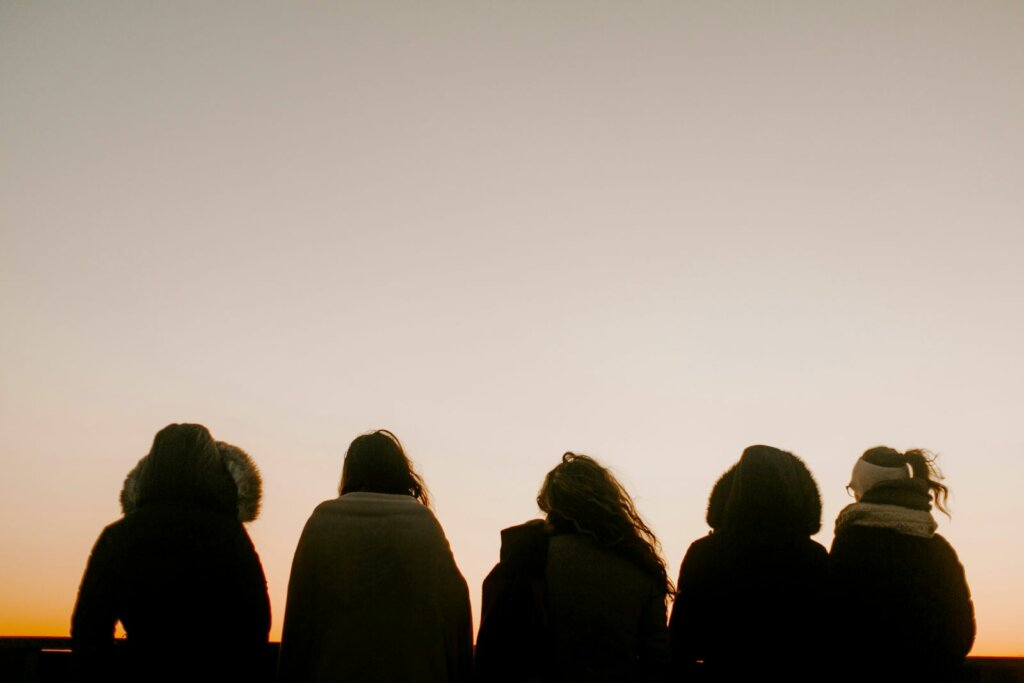
You belong somewhere, I promise. Photo by Annie Williams on Unsplash
Here’s the thing though – sure, in that setting every child said “country” but that doesn’t mean every child everywhere would have answered in the same way. I didn’t realize at that time I wasn’t weird, it’s more that I didn’t have anything in common with the people around me. That’s different. People who shared my interests existed in the world even if I didn’t go to school with them. What’s helping me to remember this is I organized a Zoom meetup for the young people in my spiritual community.
In our small group, we had people joining from London, Copenhagen, Moscow, and all over the U.S. Within the U.S., some people originally hailed from India, the Philippines, and Brazil. Only a handful of people live geographically close to me, which feels like the greatest gift, but also knowing there are people like me who live far away is a gift. It reminds me I do belong and there is a place for me. When I share that with the parts of me that feel like a weirdo, loser freak, they feel better too because I imagine a thread connecting me to each and every person in the world who is like me.
There’s a quote from C.S. Lewis who said, “Friendship is born at that moment when one person says to another: ‘What! You too? I thought I was the only one!’” Precisely. You’re not the only one even if sometimes it feels that way. You aren’t the only one even if the people around you are into different things. You already belong right here, right now and I hope you can feel that.
I dream of a world where we recognize someone, somewhere is into the things we’re into. A world where we remember that just because the people around us are into different things doesn’t mean we’re weird. A world where we recognize we may be far apart from the people who are most like us, but those people do exist. A world where we remember we already belong.
Another world is not only possible, it’s probable.
When I was 20, I studied abroad in London and noticed a man hanging up a payphone before he approached me. He sold me a song and dance about how he lost his luggage, had no money, and needed help. He told me I should write down my address so he could pay me back and being the gullible and trusting person that I am, I bought everything he said. He was effusive in his praise, saying, “God bless you and your family. You’re a good person,” etc. I felt like a hero in the moment.
Looking back though, it was a scam. He hung up the payphone as soon as he saw me like he was searching for a target. And he was too over the top, too aggressive, and didn’t act at all like a desperate person who had truly lost their luggage and all their belongings. That man had no intention of paying me back and only wanted to make a quick buck preying off naïve girls like me. I felt like an idiot after the fact for believing this man and I let it color all my future interactions with people asking for money.
Fast forward three years and while walking to work in San Francisco, a man who looked dazed and had a cut on his forehead approached me and said he was just mugged. He, too, asked for money but I refused because I wasn’t sure I could trust him based on my past experience with the man in London. My reasons were valid but looking back, he really was in need of help and I botched that service opportunity. In that story for that man, I wasn’t the villain because I didn’t mug him but I’m sure he cast me in the role of a jerk. And he’d be right.
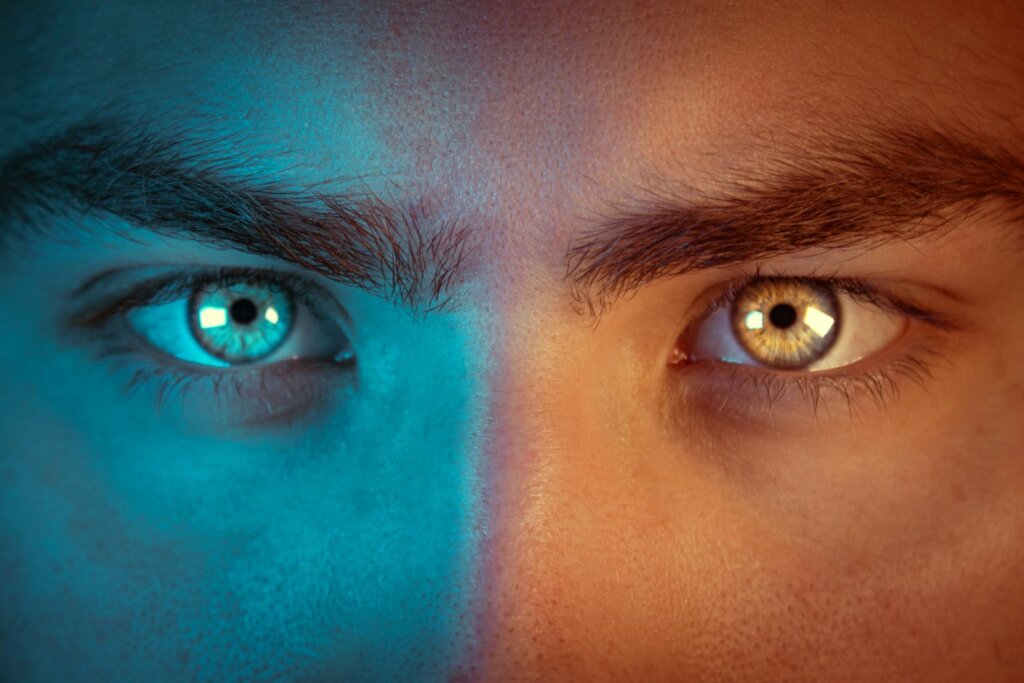
Human beings are multifaceted. Photo by Gabriel Meinert on Unsplash
Oftentimes we paint ourselves in certain lights and have a static self-image. “I’m a good person,” we might say. Or, “He’s a bad man,” but the truth is far more complicated. We are all heroes and villains depending on the circumstances. We are all good and bad and to think otherwise only exacerbates what psychologists call cognitive bias, which is what it sounds like. It helps us make sense of the world and reach decisions with relative speed but a bias also means we discard information that doesn’t prop up our view of reality or a person.
While in some ways a cognitive bias is helpful, it’s also harmful because it has us ignoring certain behaviors or information. And on a personal level, it keeps us from growing. In order to grow, we have to see things as they really are, not what we think they are, ourselves included.
This topic is on my mind because I see a heck of a lot of people saying, “I could never do that,” which is patently false. We are all capable of good and evil. We are all heroes and villains. That’s because there are two forces constantly playing tug of war in this universe: vidyá and avidyá.
They could be translated into good and evil but that’s not quite right. They’re about the movement toward subtlety or crudeness. Avidyá seeks to drag the mind toward crude objects and bind us to the things of this world like cars, homes, and luxury goods. But it also binds us to staticity in the form of ideas. Vidyá pulls the mind toward higher ideals and asks us to expand beyond narrow sentiments, including trying to put ourselves and others in neat boxes. The force of vidyá says, “You will make mistakes but you can learn from them and become a better person.” And that’s exactly what I want for us all.
I dream of a world where we recognize we are all like the yin-yang symbol with a little bit of everything. A world where we understand no person is wholly good or wholly bad. A world where we remember there are two forces in the world pulling us toward crudity or subtlety. A world where we choose to turn toward subtlety whenever and wherever we can because we remember we all have the capacity to be heroes as well as villains.
Another world is not only possible, it’s probable.
This week the message I keep receiving is, “Trust the sweetness,” meaning, trust the sweetness of life, trust the sweetness of possibility, trust the sweetness of my relationships. For the past month, I’ve been wrestling with joy, doing my best to let more in, acting as if when that seems impossible, and trying to accept where I am without judgment and criticism. Related to it all is having faith, which is a conscious choice, and in this case, it means having faith that life is sweet.
I know it’s easy to do the opposite, to say, “Look! We’re all screwed!” I know how tempting it is to say everything is awful and to build a case for that based on real-world events. Humans have a negativity bias, we are primed for that. But we are also primed for joy and pleasure and there’s lots of evidence to support that too.
While writing this blogpost, I kept thinking about something that happened to me in May 2019. I visited with my then next-door neighbor and their dog for a spell. When I re-entered my apartment, I walked to the bathroom to wash my hands. As I turned and looked at my reflection in the mirror, I noticed something on my back. My heart leapt thinking a large spider crawled on me. When I peered closer, I determined it wasn’t a spider, it was a bumblebee.
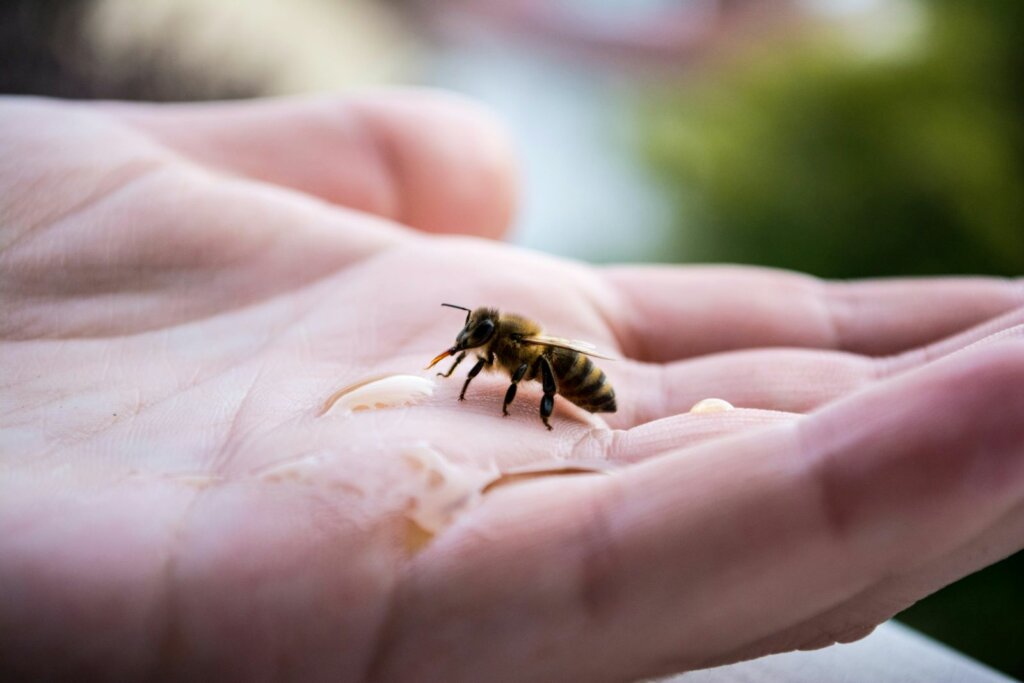
I love this picture with its perfect mix of trust and sweetness. Photo by Fabian Kleiser on Unsplash
I spent literally one second outside crossing the threshold from my neighbor’s apartment into mine, and in that second, a bumblebee landed on me. Either that or my neighbor had a bumblebee in their house. Regardless, a strange event.
In shamanism, do you know what bumblebees represent? The honey or sweetness of life, of course. I’d like to believe the bumblebee showed up in an unusual way to emphasize that point. To say, “Yes, remember life is joyful, it’s sweet. Keep going in this direction. Remember good things and keep in mind positive outcomes are just as likely as negative ones.”
It’s not only the bumblebee delivering this message; it’s also numerous spiritual traditions around the world. The ancient Hindu scriptures, the Vedas, say, “This quinquelemental world has been born out of joy, is being maintained in joy, and into sacred joy will melt.”
My spiritual teacher also says, “On deeper analysis, we find that every object of this universe is sweet. Sweetness, not harshness, is the reality. [The Divine Beloved] no doubt deals many blows to the microcosms, but that is just to facilitate their progress. Judged from a materialistic perspective, every blow is apparently harsh, but actually it is not harsh, it is soft. [The Divine] is concerned for your well-being, that is why [It] resorts to that apparently crude technique.”
Everything is in service of sweetness, to move me closer to the Divine Beloved that is within me and outside of me. Even the hard things. Even the painful things. Even the baffling things. The loving presence that pervades this entire universe wants me to be happy, wants me to be joyful. I’m being guided to that and the more I can trust that I’m being led somewhere sweet, that life is sweet, the better. The world was born out of joy, is being maintained in joy, and will melt in sacred joy. And that means me too.
I dream of a world where we allow ourselves to move toward joy. A world where we recognize we can choose what we focus on. A world where we train ourselves to focus on sweetness and have faith that’s where we’re being led. A world where we trust in all the sweetness life has to offer.
Another world is not only possible, it’s probable.
In 12-step programs, there’s a saying that for anything to change, you must go through the three “A’s:” awareness, acceptance, and action. I’m very good at awareness and action. Acceptance? Not so much. I want to skip over acceptance and go right into action to fix whatever is wrong. I don’t want to sit with it or accept it. That’s the uncomfortable part. But there’s something to acceptance, to saying, “This is where I am right now and I don’t like it but I also don’t have to fight it.”
Did you know that one definition of “accept” is “to receive”? When I accept myself or my life circumstances, I’m receiving them, I’m meeting them, I’m greeting them. They become like a friend coming in out of a storm that I’m welcoming inside. There is no judgment, no sense of good or bad. Instead, there is neutrality and that’s exactly what I’m striving for right now. To let myself be what I am – no more and no less.

I love how flowy the jellyfish is. Photo by Giorgio Trovato on Unsplash
I can apply that mentality to circumstances as well. Do I like them? No. Can I receive them? Yes. To take the guest analogy further, guests are not residents – eventually, they leave. Some guests stay longer than others, sure, but no one sticks around forever. And in the interim, what sort of host am I? I’d like to be the gracious and hospitable kind.
There’s also something to letting the flow take over. To say to whatever is happening in my life, “I’m entering the stream and I’m letting this take me where I need to go.” There’s grace in that act of acceptance because essentially, it’s surrendering to what is, which allows something else to emerge.
There’s a story in the Mahábhárata about surrender that I don’t particularly love but illustrates surrender beautifully. When Duhshásana was pulling the sari of Draopadii, she was tightly holding the cloth to her body with one hand, beseeching Lord Krśńa with the other. “Oh! My Lord, save me!” But he didn’t come forward to save her. When Draopadii found no means of escape, she then released her hold on the cloth and appealed to the Lord most piteously with both hands outstretched, saying, “O Lord, I surrender my all to you. Do what you think is best.” And then the Lord immediately rescued her.
When I can accept something fully, that’s when something greater, larger, more magnificent can step in. It’s essentially what I wrote about last week and having my life belong to love. When I first accept what is, I’m receiving what the Divine Beloved wants to bring into my life. I may not like it in the beginning, the water may be choppy, I may throw up from seasickness, but at some point, I’ll look back and say, “Oh, I see. You did that for my benefit.” But key to that process is first, accepting.
I dream of a world where we recognize for anything to change, we must go through the process of awareness, acceptance, and then action. A world where we understand to accept something is to receive it with care. A world where we allow ourselves to move with the flow by entering the stream of life exactly where we are, right now.
Another world is not only possible, it’s probable.
For the first time in many, MANY years I hosted a group meditation at my apartment. It sparked a cleaning frenzy and had me looking at my apartment with fresh eyes. Almost exactly four years ago I stuck two pieces of masking tape above my doorknob with the phrase, “This life now belongs to love and anything can happen.”
As you can guess, after four years I barely register those pieces of masking tape but today they struck me anew. The phrase comes from Tosha Silver’s book It’s Not Your Money, which I reread every February not because I plan on it but because that’s when I need a reminder that the Divine Beloved is my source for all. This ties into my post from last week about acting as if all is well in my world and that there’s an ever-present loving entity that wants to help me, that’s running this entire show we call life anyway.
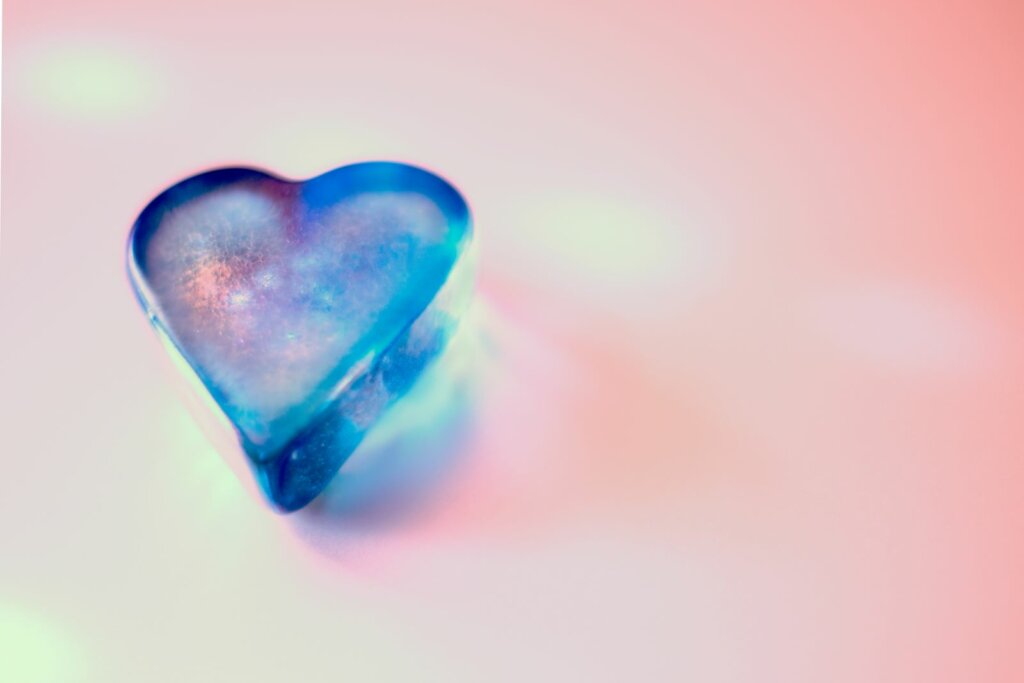
Let your life belong to love. Photo by Tim Mossholder on Unsplash
Tosha remarks people often say, “You’ll never find a parking spot in that area,” or “You’ll never find a house in this market.” Her response is, “You’re right. You won’t find a parking spot … without God.” “You won’t find a house in this market . . . without God.” She encourages people to recognize with God/Source/the universe anything and everything is possible. If something is in our best interest, if it’s in our highest good, the Divine Beloved will make it so. Even if parking is terrible, the housing market is fiercely competitive, the economy is in the toilet, etc., what we need will always come to us.
Living in such a way requires that we let go of old stories and understand no matter what happened in the past, we can do things differently now. We can live a new reality where life belongs to love and anything can happen. Doing so opens us to magic and possibilities. It means we are letting ourselves be taken care of by something greater than ourselves.
This concept of letting life belong to love also means that I’m letting love lead the way. It’s seeing there is a divine presence here, in this moment, in every moment. It’s recognizing a loving force moves through me and through you. And again, I can consciously invite that loving force into my life.
I’ve been on the spiritual path for a long time and I still need the reminder that surrender doesn’t only happen on the meditation cushion. Real surrender means saying, “Hey God/higher power/universe, I want you to take care of this. Please guide my actions. I trust where you are leading me,” and then letting go, knowing whatever needs to come, comes, and whatever needs to go, goes. I let this life belong to love.
I dream of a world where we recognize the power and the presence of a loving force in our lives. A world where we’re able to surrender and let go of our micromanaging tendencies and fully trust all true needs will be met, and often in amazing ways. A world where we realize things work out better if we let our lives belong to love.
Another world is not only possible, it’s probable.
I’m all about the questions these days. I want to be happy, joyous, and free so I’m asking what that looks like and how to accomplish it. I’m aware that happiness requires daily action, it’s not a destination, but I know the way I think and act has a lot to do with how I feel. Often, my thoughts are negative and I slip into worst-case scenarios, which doesn’t feel great.
If I throw a party, I’m sure no one will come. If it’s a slow week work-wise, I’m convinced I won’t be able to pay my rent and will have to move back in with my parents. I know it’s a protective mechanism, that I want to save myself from disappointment and also prepare for the worst, but it kind of sucks. It’s not fun to constantly scan for threats and be negative. As I wrote about last week, it robs me of joy.
I’m affirming, “I create a new life with new rules that totally support me.” But how do I actually do that? What occurred to me is a concept that I learned from 12-step programs, which is “acting as if.” It means pretending until something feels real. It’s building a baseball field believing the players will come, to cite the movie Field of Dreams. It’s taking contrary actions that don’t feel natural until one day they do.

“If you build it, he will come.” Classic acting as is. Photo by Mick Haupt on Unsplash
For me, the questions are, “How can I act as if the universe loves and supports me? What would I do/say/think if I believed all is well and that I’m being taken care of?” It may seem like small questions but the ramifications are huge. If I believe the money will come to pay my rent, then right now I would stop worrying and spinning my wheels. If I trust that all is well, I would have patience in the here and now knowing that every delay is beneficial and the perfect fill-in-the-blank has already been selected. I would affirm that all right actions will be shown.
It reminds me of something my friend Emma said in November 2021 after I was in a car accident: “There will always be an invitation to the fear and negativity party but you can choose to decline.” It was a powerful perspective shift that’s resurfacing. I don’t have to say yes to negativity and worst-case scenarios. I can choose to center myself in faith, not by doing it once, but like with happiness, making it a daily practice.
My spiritual teacher says over and over again if a person takes shelter in the Supreme, they need not be afraid of anything in this world. That the divine is “more courageous than the most courageous, and braver than the bravest. Those who take shelter in [the divine] are therefore bound to acquire these qualities: courage, bravery, chivalry, and so on. Once endowed with such qualities, what is there to fear?”
When I’m in fear, I’m not taking shelter in the Divine Beloved. I’m separating myself and saying, “Oh no! I’m all alone! I have to figure it out!” But I’m not alone, ever. There is an entity that is nearer than near, that is with me now, forever, and always. What would my life be like if I remembered that? And if that feels inaccessible, which it does right now, what if I acted as if I was never alone? That I was always loved, always cared for, and always supported? I’m not sure yet but I notice my breathing deepens and I feel soothed contemplating it so I think I’m on the right track.
I dream of a world where we remember there can be a step between doubt and faith. A world where we recognize that step is acting as if. A world where we realize even if we don’t believe it, we can act as if all is well, that we are loved, taken care of, and supported. A world where we know there is power in pretending because eventually, the masquerade becomes reality.
Another world is not only possible, it’s probable.
On the heels of my post from last week about not settling, emerged another question: “What is my capacity for joy?” If I go after what I truly want, how comfortable am I getting it? Or experiencing joy in general? It turns out I’m not all that comfortable. It’s been humbling to realize I feel better when things are going wrong than when they’re going right. And also to recognize I stop myself from feeling joy by imagining all the terrible things that could happen.
Here’s a perfect example I keep thinking about. In September 2014, my dear friend Amal and I went to Tomales Bay and swam with bioluminescent plankton. For context, Tomales Bay only has a few nights a year in which numerous factors come together so that you can perceive the bioluminescent plankton in its waters.
He and I arrived on such a night and not only did we creep to the edge of the water and splash around, Amal made the impulsive decision to get into the water. Without a wetsuit. In the Pacific Ocean. While I was wearing a hat and coat and scarf on the beach. The water though? It was warm. Warm! With a little coaxing, I stripped down to my underwear and joined him.

This is the Maldives, so not Tomales Bay but it *is* bioluminescence. Photo by Ahmed Nishaath on Unsplash
It was the most magical, mystical, profound experience with nature I’ve ever had. Him too. It was so powerful, he wrote his master’s thesis about it and I highly recommend you read his account if you haven’t already. If you want the in-depth version, there’s also a video. Here is a small quote from his piece:
“It’s one thing to think, to believe that the universe is interpenetrating and interconnected – that everything resonates with everything else, and really we’re all a part of a web. It’s another thing to literally see it – to feel it. Spinning in circles, every thrust of my arm out before me was like a spiral arm of the Milky Way, the movements of my body giving birth to billions of glimmering stars. And the lights – the lights responded to me. If I moved slowly, they moved slowly. If I moved quickly, they worked hard to keep up. Violent or gentle, deep or shallow, no matter how I moved, no matter what I did, the lights, the bay, the whole universe, it felt like, seemed lovingly, longingly, intimately desperate to respond. I felt embedded. I felt like I was dancing.”
How does this relate to my post on joy? Because even while experiencing all this beauty and wonder, I couldn’t fully be there! I kept worrying I’d get stung by a jellyfish, or step on something weird, or cut my foot on a rock. When I told Amal about it on the car ride back, he said, “That makes me sad.” I heard what he said but I couldn’t take in the sentiment because it’s where I was at the time. My sleep disorder hadn’t been sorted out, my nervous system was on high alert all the time, I was in the middle of packing up my apartment to move again. In other words, I was a wreck and so of course it was hard to take in joy.
I’m not beating myself up about it but I also don’t want to keep missing out on my life because I’m so worried about what may or may not happen. I don’t want to think about jellyfish and rocks when I’m having a once-in-a-lifetime experience. I want to be fully present and immersed in joy. The solution? I’m still working on it but it starts with letting go of my old self and replacing it with someone new.
Louise Hay has a wonderful affirmation that addresses this: “I create a new life with new rules that totally support me.” In my new life with new rules that totally support me, it’s safe to be joyful. It’s safe to be happy. I allow myself to experience all the good that life has to offer and I want that for you too.
I dream of a world where we let ourselves experience the full range of our emotions. A world where we fully immerse ourselves in the moment without worrying it will disappear. A world where we know at any time we can choose to think differently. A world where we increase our capacity to feel joy.
Another world is not only possible, it’s probable.
